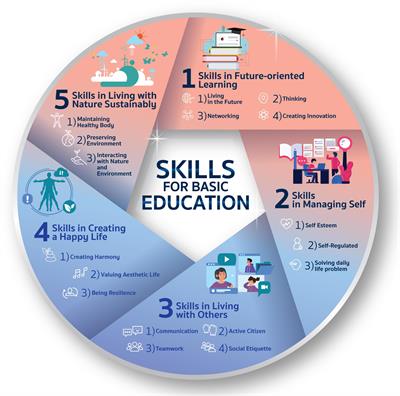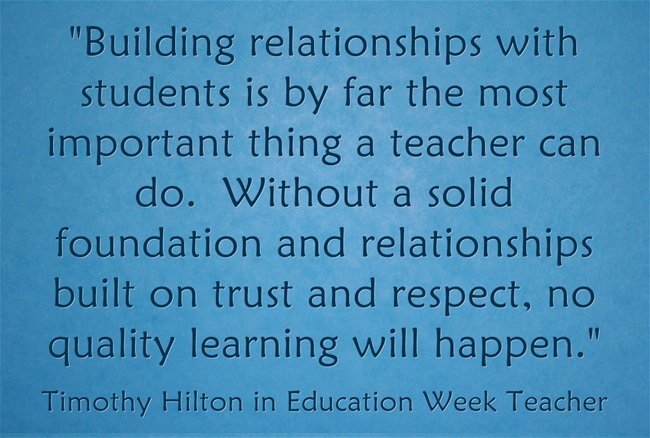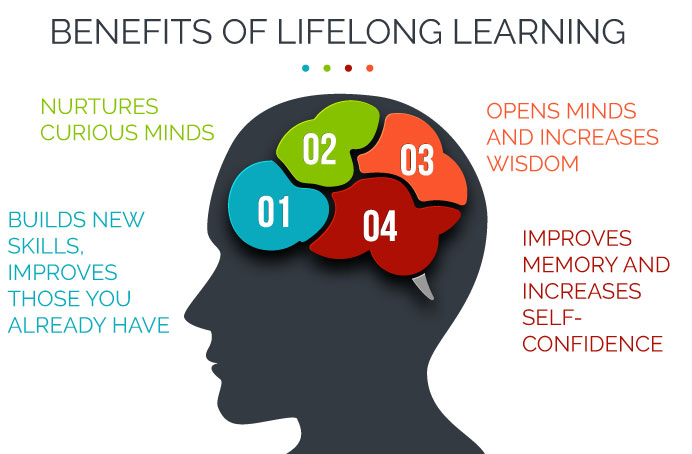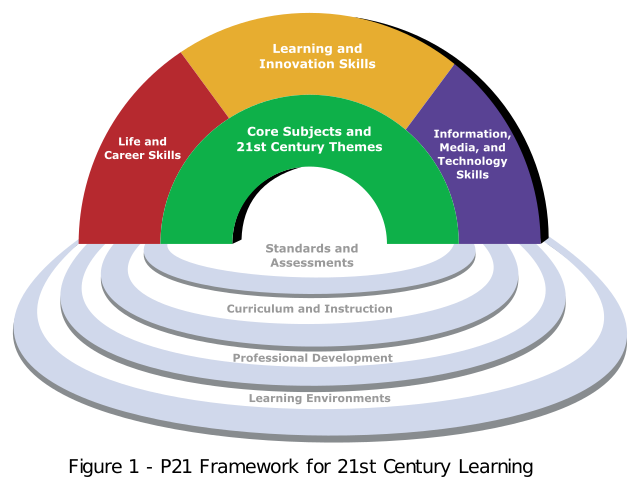Introduction
Youth sports have long been recognized for their physical benefits, but their influence extends far beyond the playing field. Engaging in sports during childhood and adolescence is a transformative experience that fosters character development and imparts lifelong skills. In this article, we’ll explore how youth sports contribute to the growth of well-rounded individuals equipped with essential life skills.
Youth sports, often seen as a playground for physical activity, are indeed a transformative force that shapes individuals in profound ways. While the physical benefits are evident, the impact of engaging in sports during childhood and adolescence reaches much further. It’s a journey of character development, a classroom for life skills, and a foundation for becoming well-rounded individuals. Let’s delve deeper into how youth sports contribute to the growth of individuals equipped with essential life skills:
1. Discipline and Responsibility: Youth sports instill discipline and responsibility from an early age. Young athletes learn the importance of showing up for practice, following a schedule, and meeting commitments. This sense of duty extends into adulthood, aiding in time management and reliability.
2. Teamwork and Cooperation: Team sports teach invaluable lessons about collaboration, cooperation, and teamwork. Children and teenagers discover the importance of working harmoniously with teammates, understanding their roles, and contributing to a common goal. These skills are vital in school, work, and personal relationships.
3. Leadership and Communication: Within sports teams, leaders emerge. Youth athletes have opportunities to take on leadership roles, whether as team captains or role models. They develop effective communication skills, learning how to motivate, inspire, and guide their peers, which are crucial in leadership roles later in life.
4. Resilience and Perseverance: Sports come with their share of victories and defeats. Young athletes learn resilience by facing setbacks, losing games, and experiencing disappointment. These experiences teach them to bounce back, persevere, and develop a growth mindset, which is beneficial in handling life’s challenges.
5. Goal Setting and Achievement: Youth sports provide a tangible arena for setting and achieving goals. Whether it’s improving a skill, winning a competition, or breaking a personal record, young athletes experience the satisfaction of setting targets and working diligently to attain them. This skill carries over into academic and professional pursuits.
6. Time Management: Balancing school, sports, and personal life requires effective time management. Youth athletes learn to prioritize their commitments and allocate time wisely. This skill becomes invaluable as they grow and face increasingly complex responsibilities.
7. Sportsmanship and Respect: Respect for opponents, coaches, and officials is a fundamental aspect of sportsmanship. Youth sports teach young individuals to win with humility and lose with grace. These values translate into respect for diverse perspectives and respect for others in various life situations.
8. Healthy Lifestyle Choices: Engagement in sports promotes a healthy lifestyle. Young athletes learn the importance of regular physical activity and proper nutrition. These habits contribute to lifelong well-being, reducing the risk of chronic diseases and promoting a healthier, longer life.
9. Stress Management: Sports serve as a constructive outlet for stress and emotions. Youth athletes discover the benefits of physical activity in reducing stress and maintaining mental well-being. These coping mechanisms are invaluable in handling the stressors of adulthood.
10. Lifelong Love for Activity: Many individuals who participate in youth sports develop a lifelong passion for physical activity. They carry the joy of movement and sports into adulthood, staying active and reaping the physical and mental health benefits throughout their lives.
In conclusion, youth sports are not just about athletic prowess; they are powerful tools for character development and life skill acquisition. They shape young individuals into responsible, resilient, and well-rounded adults. These experiences on the playing field are not confined to childhood; they are seeds that grow into the attributes of successful, compassionate, and skilled individuals who contribute positively to their communities and society as a whole.
Additionally, you can find further information on this topic by visiting this page: Youth sport: positive and negative impact on young athletes – PMC
Youth sports provide a platform for young individuals to face adversity and build resilience. Whether it’s dealing with defeat, overcoming injuries, or pushing through the rigors of training, these experiences teach young athletes to bounce back from setbacks with determination and a positive attitude. This resilience is a valuable asset in facing life’s challenges.
nullFor a comprehensive look at this subject, we invite you to read more on this dedicated page: Developing life skills through sports | healthdirect

Team sports, in particular, emphasize the importance of teamwork and collaboration. Young athletes learn to work cohesively with their teammates, understanding that collective effort often leads to success. These teamwork skills extend beyond the sports arena and are applicable in school group projects, professional environments, and community involvement.
Team sports, with their emphasis on teamwork and collaboration, are invaluable in shaping not just young athletes but future leaders and contributors to society. Through the rigors of team dynamics, these sports instill values and skills that extend far beyond the boundaries of the playing field.
In the realm of teamwork, young athletes not only discover the importance of collaboration but also the significance of trust and communication. In team sports, success hinges on players being in sync, anticipating each other’s actions, and seamlessly coordinating their efforts. This understanding of trust and communication isn’t confined to the game; it becomes a fundamental life skill.
As these athletes grow, the teamwork skills they honed on the field become applicable in various aspects of life. In school, group projects and extracurricular activities benefit from their ability to work cohesively with peers. They understand the synergy that arises when diverse talents are harnessed towards a common goal.
In professional environments, these athletes often excel as they bring the qualities of teamwork and collaboration to the workplace. They comprehend the significance of shared objectives, supportiveness, and effective communication, making them assets to any team or organization.
Furthermore, these teamwork skills transcend individual success and contribute to a sense of community involvement. Young athletes often become involved in community service and volunteering, bringing with them a strong ethos of teamwork and a commitment to making a difference.
Team sports, in essence, serve as life’s training ground for building character and leadership. They teach the value of collective effort, the strength in unity, and the rewards of working together towards a common goal. Through team sports, young athletes emerge not only as better players but as individuals who carry these essential life lessons into adulthood, enriching their communities and workplaces with their collaborative spirit and dedication to making a positive impact.
Additionally, you can find further information on this topic by visiting this page: The Case for High School Activities

Youth sports require commitment and discipline. Young athletes must balance their training and competition schedules with academic responsibilities and personal life. This experience instills effective time management skills, helping them prioritize tasks and allocate their time efficiently—a valuable skill set that benefits them throughout their lives.
The world of youth sports is not just about honing physical abilities and scoring goals; it’s also a training ground for life skills that will serve young athletes well in their future endeavors. The commitment and discipline demanded by youth sports go far beyond the playing field, extending into various aspects of life. Here’s how the experience of balancing athletics with academics and personal life instills effective time management skills that become invaluable:
Prioritization: Juggling sports, academics, and personal life necessitates a keen sense of prioritization. Young athletes learn to identify what’s most important in the moment and allocate their time and energy accordingly. This skill becomes instrumental in managing responsibilities in school, work, and daily life as they grow older.
Time Allocation: Young athletes quickly discover that time is a limited resource. They must allocate their time wisely to accommodate training sessions, matches, and study hours. This early exposure to time management fosters the ability to create schedules and routines that maximize productivity and minimize stress.
Effective Planning: Planning is a key component of time management. Youth sports require athletes to plan not only their training sessions but also their travel schedules, meal times, and recovery periods. Learning to plan effectively ensures that nothing falls through the cracks and that they can meet both their athletic and academic commitments.
Setting Goals: Setting goals is an integral part of youth sports. Athletes aim to improve their skills, achieve specific milestones, and, perhaps, earn scholarships or recognition. This goal-setting process teaches them the importance of setting clear, achievable objectives in all aspects of life and working steadily toward them.
Adaptability: The unpredictability of sports schedules and the need to adapt to unforeseen circumstances teach young athletes to be flexible and adapt quickly to changing situations. This adaptability is a valuable asset when dealing with the unexpected challenges that life often presents.
Stress Management: Balancing sports and academics can be stressful, but it also provides an opportunity to learn stress management techniques. Young athletes develop strategies to cope with pressure, which they can apply to handle stress in academic, professional, and personal situations.
Responsibility and Accountability: Youth sports instill a sense of responsibility and accountability. Athletes are responsible for attending practices, completing assignments, and meeting team obligations. This sense of responsibility extends to other areas of life, emphasizing the importance of meeting commitments and fulfilling obligations.
Teamwork: Many youth sports involve teamwork, fostering interpersonal skills and collaboration. These skills become invaluable in group projects at school, team-based projects at work, and building successful relationships in all aspects of life.
In conclusion, youth sports offer far more than athletic prowess; they are a training ground for life. The commitment and discipline required teach young athletes effective time management, an essential life skill. As they navigate the complex web of sports, academics, and personal life, they are equipping themselves with tools that will empower them to excel in their careers, manage responsibilities, and lead balanced and successful lives in the future.
If you’d like to dive deeper into this subject, there’s more to discover on this page: A grounded theory of positive youth development through sport …

Sports encourage young individuals to set and pursue goals. Whether it’s improving their performance, winning a championship, or achieving a personal best, goal setting is a fundamental part of sports. This skill is transferable to academic endeavors, career aspirations, and personal life goals.
Engaging in sports from a young age instills in individuals the invaluable art of setting and pursuing goals. This fundamental aspect of sports, which often revolves around enhancing performance, clinching championships, or surpassing personal bests, goes far beyond the boundaries of the field or court. It becomes a blueprint for success in other facets of life, such as academics, career aspirations, and personal growth.
1. Discipline and Commitment: In sports, success is closely tied to discipline and commitment. Young athletes learn that achieving their goals demands consistent effort, rigorous training, and unwavering dedication. This work ethic becomes a guiding principle that they can apply to their studies, careers, and any other endeavors they choose to pursue.
2. Resilience and Perseverance: Sports teach young individuals the art of resilience. They learn that setbacks and losses are part of the journey, but these setbacks should never deter them from their ultimate goals. This resilience becomes a lifeline in the face of academic challenges, professional hurdles, and personal hardships, enabling them to bounce back stronger each time.
3. Time Management: Balancing sports with other commitments, such as school or work, requires effective time management. Young athletes become adept at juggling various responsibilities, honing their time management skills. This becomes particularly valuable when navigating the demands of a career while pursuing personal goals.
4. Teamwork and Collaboration: Many sports involve teamwork and collaboration, where individual success is closely tied to the team’s performance. Young athletes learn to communicate effectively, trust their teammates, and collectively work toward a common objective. These teamwork skills are indispensable in professional settings where collaboration is key.
5. Goal Clarity: Setting clear and achievable goals is a critical skill acquired through sports. Young individuals learn to break down overarching objectives into manageable steps, creating a roadmap to success. This structured approach to goal setting can be applied to academic projects, career advancement plans, and personal development goals.
6. Mental Toughness: Sports demand mental toughness, teaching young athletes to stay focused, maintain composure under pressure, and push their limits. These mental attributes are transferable to academic exams, high-stress work environments, and personal challenges.
7. Self-Motivation: Achieving success in sports often requires intrinsic motivation. Young athletes develop a sense of self-motivation, driven by their desire to excel. This self-propelled ambition can fuel their pursuits in academia, career advancement, and personal growth.
In conclusion, sports serve as a dynamic training ground for young individuals, equipping them with a toolkit of skills that extend far beyond the field of play. The ability to set and pursue goals, honed through sports, becomes a cornerstone of success in academics, careers, and personal life. It transforms young athletes into resilient, disciplined, and goal-oriented individuals who are well-prepared to tackle the challenges and opportunities that life presents.
Should you desire more in-depth information, it’s available for your perusal on this page: A grounded theory of positive youth development through sport …

Participation in youth sports promotes a healthy lifestyle. Young athletes become aware of the importance of proper nutrition, regular exercise, and adequate rest for optimal performance. These habits lay the foundation for a lifetime of good health choices.
nullTo expand your knowledge on this subject, make sure to read on at this location: Developing life skills through sports | healthdirect

Sports require mental toughness and concentration. Young athletes learn to stay focused under pressure, make quick decisions, and maintain composure during challenging situations. These mental skills benefit them academically, professionally, and personally.
The world of sports is not just about physical prowess; it’s also a realm where mental fortitude and concentration are honed to perfection. For young athletes, this training ground provides invaluable lessons that extend far beyond the field, court, or arena. Here’s how the mental skills developed in sports become life assets with far-reaching implications:
Resilience Under Pressure: In sports, moments of intense pressure are commonplace. Whether it’s a crucial penalty kick, a decisive free throw, or a game-winning putt, young athletes learn to stay cool under pressure. This resilience serves as a valuable asset in academics, where high-stress exams and deadlines are a reality, and in professional life, where making critical decisions amid deadlines and responsibilities is paramount.
Quick Decision-Making: Sports demand split-second decisions. Athletes must assess situations rapidly and choose the best course of action. These honed decision-making skills not only lead to victory on the field but also translate into astute choices in everyday life. Whether it’s making career decisions, financial choices, or personal judgments, the ability to think on your feet becomes an asset.
Composure Amid Challenges: The unpredictable nature of sports often presents unexpected challenges. Athletes are trained to maintain composure in the face of adversity, whether it’s a setback in the game or a career obstacle. This ability to keep a clear head during challenging situations can be a game-changer in both professional and personal life, helping individuals navigate setbacks with grace and determination.
Goal Setting and Persistence: Athletes set clear goals and work relentlessly to achieve them. This goal-setting mentality becomes a blueprint for success in academics, where striving for excellence is essential, and in the professional realm, where setting and achieving objectives can lead to career advancement and personal fulfillment.
Teamwork and Leadership: Sports often involve collaboration within a team and the need for effective leadership. Young athletes learn the art of teamwork, communication, and motivating their peers. These skills are not only crucial in professional settings but also in personal relationships, where effective communication and teamwork are foundations for success.
Time Management: Balancing sports with academic commitments requires effective time management. Young athletes become adept at organizing their schedules, prioritizing tasks, and meeting deadlines. This time-management prowess extends into professional life, where juggling multiple responsibilities is a common challenge.
Healthy Coping Mechanisms: Engaging in sports can be a healthy outlet for stress and frustration. Instead of resorting to negative coping mechanisms, athletes channel their emotions into their performance. This ability to manage stress constructively is beneficial in maintaining mental health and well-being.
Self-Discipline: Sports instill a sense of self-discipline and dedication. Athletes adhere to rigorous training regimens, follow dietary guidelines, and maintain a focused mindset. These attributes become a foundation for personal development, leading to better habits and self-improvement in various aspects of life.
Confidence Building: Success in sports breeds self-confidence. Young athletes develop a belief in their abilities, which translates into a positive self-image. This newfound confidence extends to academics and professional life, where self-assurance can be a key factor in achieving goals.
In conclusion, the mental skills cultivated in sports extend their influence far beyond the playing field. Young athletes emerge from their sporting experiences equipped with resilience, decision-making prowess, composure under pressure, and a host of other qualities that empower them academically, professionally, and personally. These life lessons underscore the profound impact that sports can have in shaping well-rounded, confident, and successful individuals.
For a comprehensive look at this subject, we invite you to read more on this dedicated page: 23 Resilience Building Activities & Exercises for Adults

In the heat of competition, conflicts may arise, but youth sports provide a controlled environment for teaching conflict resolution and sportsmanship. Young athletes learn to respect opponents, follow rules, and handle both victory and defeat with grace.
Within the arena of youth sports, a valuable crucible for character development and personal growth unfolds. While competition often fuels intense emotions, it is within this controlled environment that young athletes are afforded a unique opportunity to hone their skills in conflict resolution and sportsmanship, preparing them for life’s challenges beyond the playing field.
1. Respect for Opponents: Youth sports teach young athletes the importance of respecting their opponents. In the heat of competition, it’s easy to become engrossed in the desire to win. However, as they progress in their sporting journeys, young athletes learn that true sportsmanship involves recognizing the skill, effort, and dedication of their adversaries. This respect extends beyond the game and into the broader context of life, fostering a sense of empathy and understanding.
2. Rule Adherence: Following rules is a fundamental aspect of sportsmanship. Youth sports provide a structured setting where players must adhere to a set of rules and regulations to ensure fair play. By respecting and following these rules, young athletes not only uphold the integrity of the game but also gain an appreciation for the importance of rules and boundaries in various life situations.
3. Handling Victory and Defeat: Youth sports offer a microcosm of life’s ups and downs. Young athletes experience both victory and defeat on the field, and in doing so, they learn invaluable life lessons. Winning teaches them the joys of hard work and achievement, while losing fosters resilience and the ability to bounce back from setbacks. These experiences prepare them to face challenges and triumphs with grace and humility in their adult lives.
4. Conflict Resolution: Conflicts are an inevitable part of any competitive environment, and youth sports provide a safe space for young athletes to learn how to manage conflicts effectively. Whether it’s resolving disagreements with teammates or handling disputes with opponents, these experiences equip them with conflict resolution skills that can be applied in their personal and professional relationships.
5. Emotional Regulation: Emotions often run high in competitive sports, and learning to manage these emotions is crucial for both performance and sportsmanship. Young athletes discover the power of emotional regulation—how to stay composed under pressure, handle frustration constructively, and channel their energy positively. These skills extend far beyond the playing field, aiding in stress management and decision-making throughout life.
6. Teamwork and Camaraderie: Youth sports instill the value of teamwork and camaraderie. Being part of a team teaches young athletes the importance of collaboration, communication, and trust. These skills are transferable to countless scenarios, from group projects in school to collaborative efforts in the workplace.
7. Mentorship and Role Models: Youth sports often involve coaches and mentors who exemplify sportsmanship and character. These role models inspire young athletes to emulate positive behaviors, encouraging the development of strong moral and ethical values that guide their actions in adulthood.
In essence, youth sports serve as a powerful training ground where young athletes not only refine their physical abilities but also cultivate essential life skills. Through conflict resolution, respect for opponents, adherence to rules, and the capacity to handle both triumph and adversity with grace, these young individuals are primed to become responsible, empathetic, and resilient adults. Their experiences on the field lay the foundation for a lifetime of personal growth and ethical decision-making, emphasizing that sportsmanship extends far beyond the boundaries of the game.
For a comprehensive look at this subject, we invite you to read more on this dedicated page: Youth sport: positive and negative impact on young athletes – PMC

Youth sports often present opportunities for young individuals to take on leadership roles, such as team captain or mentor to younger teammates. These experiences enhance their leadership qualities and communication skills, which can be applied in various aspects of life.
Engaging in youth sports is akin to a training ground for leadership, where young individuals not only hone their athletic prowess but also develop essential life skills that set them on a path toward success. Let’s delve deeper into how these formative experiences in youth sports help nurture leadership qualities and effective communication, which become invaluable assets in various facets of life:
Team Captainship: Serving as a team captain is a responsibility that goes beyond the title. It involves leading by example, motivating teammates, and fostering a sense of unity and camaraderie. Youth athletes entrusted with this role learn to make decisions under pressure, manage conflicts, and inspire their peers to strive for excellence. These leadership skills extend far beyond the playing field, preparing them for future roles in school, work, and community leadership.
Mentorship: Older youth athletes often take on mentorship roles, guiding and supporting younger teammates as they navigate the world of sports. These interactions develop their ability to communicate effectively, empathize with others, and provide guidance and encouragement. The experience of mentoring fosters a sense of responsibility and empathy, qualities that serve them well in both personal and professional relationships.
Effective Communication: Communication is a cornerstone of leadership, and youth sports offer a platform to refine this skill. Team huddles, pre-game strategies, and on-field coordination require clear and concise communication. Youth athletes learn to convey instructions, provide constructive feedback, and motivate their peers effectively. These communication skills are transferable to academic endeavors, workplace interactions, and social relationships.
Conflict Resolution: Conflict is a natural part of any team environment, and youth athletes gain firsthand experience in resolving disputes and maintaining team harmony. Learning to address conflicts constructively, whether related to strategy, playing time, or personal differences, equips them with conflict resolution skills that are invaluable in school, family, and professional settings.
Decision-Making Under Pressure: Youth sports often place athletes in high-pressure situations where quick decision-making is essential. Whether it’s a split-second decision on the field or a strategic move during a game, young individuals develop the ability to think critically and make sound decisions, even in the face of adversity. These decision-making skills become assets when faced with academic challenges or career choices.
Resilience and Determination: Leadership in sports requires resilience and determination. Young athletes learn to bounce back from defeats, setbacks, and injuries. They develop a growth mindset that enables them to view challenges as opportunities for growth. This resilience becomes a driving force in their pursuit of personal and professional goals.
Goal Setting and Planning: Success in sports often hinges on setting clear goals and developing plans to achieve them. Youth athletes apply these principles to both their athletic endeavors and academic pursuits. They learn the importance of setting achievable goals, creating strategies to reach them, and monitoring progress along the way.
In conclusion, youth sports serve as a dynamic platform for nurturing leadership qualities and effective communication skills in young individuals. These experiences instill qualities such as responsibility, empathy, resilience, and adaptability—attributes that lay a strong foundation for success in school, work, and life. As young athletes step into leadership roles and navigate the challenges of sports, they are not only preparing themselves for athletic achievements but also for a future where their leadership and communication skills will shine brightly in every endeavor they pursue.
For a comprehensive look at this subject, we invite you to read more on this dedicated page: How Sports Can Prepare You for Life · Frontiers for Young Minds

Achievements and improvements in sports boost self-esteem and confidence. Young athletes gain a sense of accomplishment from setting and reaching goals, which can positively impact their self-worth and self-belief.
nullShould you desire more in-depth information, it’s available for your perusal on this page: A grounded theory of positive youth development through sport …

Perhaps most importantly, youth sports instill a lifelong love for physical activity. Young individuals who participate in sports are more likely to remain active throughout their lives, reaping the long-term health benefits of an active lifestyle.
Youth sports are not just about the immediate physical benefits or developing sporting skills; they plant the seeds for a lifelong love affair with physical activity. Here’s a more extensive exploration of why this enduring passion for movement is one of the most vital gifts that youth sports can bestow:
Healthy Habits for Life: The foundation of an active lifestyle is laid during the formative years of youth sports. These early experiences help establish a habit of regular physical activity that can last a lifetime. Adults who were once young athletes often find it easier to maintain active routines and prioritize their health.
Diverse Interests: Youth sports introduce children and adolescents to a wide range of physical activities, from team sports like soccer and basketball to individual pursuits like swimming and gymnastics. This exposure allows young individuals to discover their own preferences and interests, ensuring that they can find joy in various forms of exercise as they grow older.
Physical Literacy: Participation in youth sports enhances physical literacy, which is the ability to move with competence and confidence in a variety of physical activities. This competence fosters self-assurance in one’s physical abilities, encouraging individuals to explore new activities and push their boundaries.
Stress Relief: The stresses of adulthood can be significant, and the coping mechanism of choice for many is physical activity. Those who have grown up with a love for sports often turn to exercise as a reliable stress-relief tool, benefiting from the mood-enhancing effects of endorphins.
Healthy Aging: Staying active throughout life is a cornerstone of healthy aging. Regular physical activity helps maintain muscle mass, bone density, and overall physical function as individuals age. It can reduce the risk of chronic diseases and enhance quality of life in later years.
Social Connection: The camaraderie and social bonds formed during youth sports can lead to lifelong friendships and a sense of belonging. As individuals age, these social connections can serve as motivation to remain active, as they often involve group activities and shared fitness goals.
Role Modeling: Young athletes who grow up in a sports-oriented environment often become role models for their peers, families, and communities. Their dedication to an active lifestyle can inspire others to prioritize their health and well-being.
Goal Setting and Achievement: The experience of setting and achieving goals in youth sports translates to goal-setting skills in various life domains. This ability to set and pursue objectives becomes invaluable in personal and professional endeavors.
Mental Well-Being: Physical activity is closely linked to mental well-being. A lifelong love for sports can be a powerful tool for managing stress, anxiety, and depression. It offers a healthy outlet for emotional expression and provides a sense of purpose and accomplishment.
Legacy of Wellness: Embracing a lifelong love for physical activity is a legacy that can be passed down to future generations. Parents who prioritize fitness and well-being often inspire their children to do the same, creating a cycle of health consciousness within families.
In conclusion, youth sports do more than build athletic prowess; they lay the groundwork for a lifetime of physical activity and well-being. This enduring love for movement becomes a precious gift, enriching every stage of life with health, vitality, and a deep appreciation for the joy of being active.
You can also read more about this here: The Importance of Early Childhood Training for Lifelong Success

Conclusion
In conclusion, youth sports offer a holistic experience that goes beyond physical fitness. They build character, impart essential life skills, and nurture well-rounded individuals. The lessons learned through youth sports—resilience, teamwork, discipline, goal setting, and healthy habits—become the foundation for success in academics, careers, and personal life. So, whether you’re a young athlete or a parent considering sports for your child, remember that the benefits of youth sports extend far beyond the field—they shape future leaders and well-rounded individuals ready to face life’s challenges with confidence and integrity.
In conclusion, youth sports serve as a dynamic arena for personal growth and development, encompassing a multitude of life-enhancing experiences that extend far beyond physical fitness. These endeavors are powerful character builders, offering invaluable life skills and cultivating well-rounded individuals prepared for the challenges of the future.
Character Development: Youth sports instill essential character traits that are instrumental in navigating life’s complexities. Resilience, for instance, is honed as young athletes encounter setbacks, losses, and challenging moments. They learn not to be discouraged by failure but rather to persevere, adapt, and strive for improvement. These lessons are invaluable in a world where setbacks are a natural part of any journey.
Teamwork and Collaboration: Youth sports emphasize the importance of teamwork and collaboration. Young athletes discover the power of working together towards a common goal, understanding that individual success is often intertwined with collective effort. These collaborative skills transcend sports fields and are essential in professional settings, fostering effective communication and cooperation.
Discipline and Goal Setting: Youth sports introduce the concept of discipline and the art of goal setting. Young athletes learn the value of consistent practice, time management, and setting achievable objectives. These habits not only contribute to success in sports but also serve as a foundation for academic excellence and career advancement.
Healthy Habits: Participation in youth sports encourages the adoption of healthy habits early in life. Regular physical activity, balanced nutrition, and proper rest become ingrained routines that promote lifelong well-being. These habits reduce the risk of lifestyle-related health issues and establish a healthy foundation for adulthood.
Leadership and Integrity: Through the challenges and victories of youth sports, young individuals develop leadership skills and a strong sense of integrity. They learn the importance of fair play, respect for opponents, and upholding ethical values, traits that are critical in leadership roles in the future.
These qualities, instilled through youth sports, pave the way for success in academics, careers, and personal lives. They create a generation of well-rounded individuals who are not only physically fit but also emotionally resilient, socially adept, and morally grounded. So, whether you’re a young athlete on the field or a parent contemplating enrolling your child in sports, remember that the benefits of youth sports are profound. They lay the groundwork for future leaders and capable individuals, equipping them with the confidence and integrity needed to thrive in all aspects of life.
For additional details, consider exploring the related content available here Youth sport: positive and negative impact on young athletes – PMC
More links
Explore this link for a more extensive examination of the topic: Fostering Youth Female Athletes’ Decision-Making Skills through …
